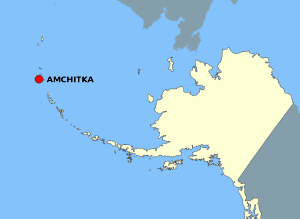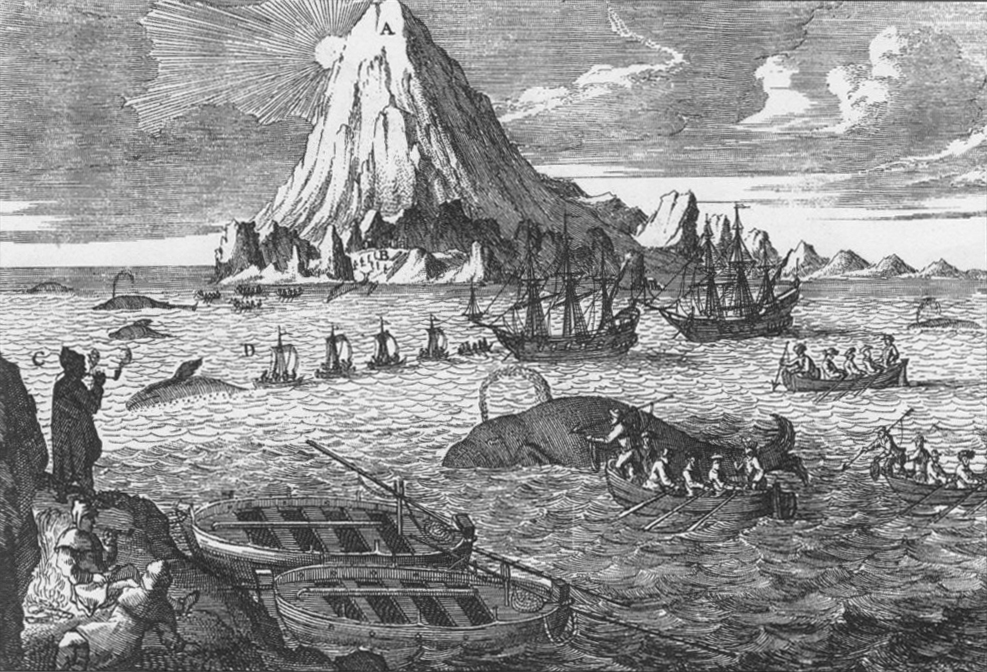|
Tokyo Two
The Tokyo Two are Greenpeace anti-whaling activists Junichi Sato and Toru Suzuki, who were arrested for stealing whale meat which they believed was embezzled, from a shipping depot in Aomori Prefecture, Japan in 2008. Theft and investigation In 2008, Sato and Suzuki, acting on a tip from an informant who claimed to be a member of a whaling crew, intercepted a box of whale meat at a Seino Transportation Company delivery depot in Aomori Prefecture, Aomori, and handed it over to the police as evidence of a theft ring within the Whaling in Japan, whaling industry. Japan says the industry is for scientific research but receives criticism for the meat being sold in shops and restaurants. Sato and Suzuki held a news conference, intending to expose what they called embezzlement of whale meat. An investigation was opened, but no charges were brought against the whalers after the investigators found that the meat was intended as souvenirs and was not sold. Seino submitted a breakage report to ... [...More Info...] [...Related Items...] OR: [Wikipedia] [Google] [Baidu] |
Greenpeace
Greenpeace is an independent global campaigning network, founded in Canada in 1971 by Irving Stowe and Dorothy Stowe, immigrant environmental activists from the United States. Greenpeace states its goal is to "ensure the ability of the Earth to nurture life in all its diversity" and focuses its campaigning on worldwide issues such as climate change, deforestation, overfishing, commercial whaling, genetic engineering, and anti-nuclear issues. It uses direct action, lobbying, research, and ecotage to achieve its goals. The network comprises 26 independent national/regional organisations in over 55 countries across Europe, the Americas, Africa, Asia and the Pacific, as well as a co-ordinating body, Greenpeace International, based in Amsterdam, the Netherlands. The global network does not accept funding from governments, corporations, or political parties, relying on three million individual supporters and foundation grants. [...More Info...] [...Related Items...] OR: [Wikipedia] [Google] [Baidu] |
International Convention For The Regulation Of Whaling
The International Convention for the Regulation of Whaling is an international environmental agreement aimed at the "proper conservation of whale stocks and thus make possible the orderly development of the whaling industry". It governs the commercial, scientific, and aboriginal subsistence whaling practices of 88 member nations. The convention is a successor to the 1931 Geneva Convention for Regulation of Whaling and the 1937 International Agreement for the Regulation of Whaling, established in response to the overexploitation of whales in the post-World War I period. Neither instrument was effective, but each provided the framework for the International Convention for the Regulation of Whaling, which was spearheaded by the United States and signed by 15 nations in Washington, D.C., on 3 December 1946; the convention took effect on 10 November 1948. A protocol broadening the scope of the convention's enforcement was signed on 19 November 1956. The objectives of the Internationa ... [...More Info...] [...Related Items...] OR: [Wikipedia] [Google] [Baidu] |
Japanese Thieves
Japanese may refer to: * Something from or related to Japan, an island country in East Asia * Japanese language, spoken mainly in Japan * Japanese people, the ethnic group that identifies with Japan through ancestry or culture ** Japanese diaspora, Japanese emigrants and their descendants around the world * Japanese citizens, nationals of Japan under Japanese nationality law ** Foreign-born Japanese, naturalized citizens of Japan * Japanese writing system, consisting of kanji and kana * Japanese cuisine, the food and food culture of Japan See also * List of Japanese people * * Japonica (other) * Japonicum * Japonicus * Japanese studies Japanese studies ( Japanese: ) or Japan studies (sometimes Japanology in Europe), is a sub-field of area studies or East Asian studies involved in social sciences and humanities research on Japan. It incorporates fields such as the study of Japan ... {{disambiguation Language and nationality disambiguation pages ... [...More Info...] [...Related Items...] OR: [Wikipedia] [Google] [Baidu] |
Year Of Birth Missing (living People)
A year or annus is the orbital period of a planetary body, for example, the Earth, moving in its orbit around the Sun. Due to the Earth's axial tilt, the course of a year sees the passing of the seasons, marked by change in weather, the hours of daylight, and, consequently, vegetation and soil fertility. In temperate and subpolar regions around the planet, four seasons are generally recognized: spring, summer, autumn and winter. In tropical and subtropical regions, several geographical sectors do not present defined seasons; but in the seasonal tropics, the annual wet and dry seasons are recognized and tracked. A calendar year is an approximation of the number of days of the Earth's orbital period, as counted in a given calendar. The Gregorian calendar, or modern calendar, presents its calendar year to be either a common year of 365 days or a leap year of 366 days, as do the Julian calendars. For the Gregorian calendar, the average length of the calendar year (the ... [...More Info...] [...Related Items...] OR: [Wikipedia] [Google] [Baidu] |
Human Rights Abuses In Japan
Humans (''Homo sapiens'') are the most abundant and widespread species of primate, characterized by bipedalism and exceptional cognitive skills due to a large and complex brain. This has enabled the development of advanced tools, culture, and language. Humans are highly social and tend to live in complex social structures composed of many cooperating and competing groups, from families and kinship networks to political states. Social interactions between humans have established a wide variety of values, social norms, and rituals, which bolster human society. Its intelligence and its desire to understand and influence the environment and to explain and manipulate phenomena have motivated humanity's development of science, philosophy, mythology, religion, and other fields of study. Although some scientists equate the term ''humans'' with all members of the genus ''Homo'', in common usage, it generally refers to ''Homo sapiens'', the only extant member. Anatomically mode ... [...More Info...] [...Related Items...] OR: [Wikipedia] [Google] [Baidu] |
People Associated With Greenpeace
A person ( : people) is a being that has certain capacities or attributes such as reason, morality, consciousness or self-consciousness, and being a part of a culturally established form of social relations such as kinship, ownership of property, or legal responsibility. The defining features of personhood and, consequently, what makes a person count as a person, differ widely among cultures and contexts. In addition to the question of personhood, of what makes a being count as a person to begin with, there are further questions about personal identity and self: both about what makes any particular person that particular person instead of another, and about what makes a person at one time the same person as they were or will be at another time despite any intervening changes. The plural form "people" is often used to refer to an entire nation or ethnic group (as in "a people"), and this was the original meaning of the word; it subsequently acquired its use as a plural form of per ... [...More Info...] [...Related Items...] OR: [Wikipedia] [Google] [Baidu] |
Japanese Environmentalists
Japanese may refer to: * Something from or related to Japan, an island country in East Asia * Japanese language, spoken mainly in Japan * Japanese people, the ethnic group that identifies with Japan through ancestry or culture ** Japanese diaspora, Japanese emigrants and their descendants around the world * Japanese citizens, nationals of Japan under Japanese nationality law ** Foreign-born Japanese, naturalized citizens of Japan * Japanese writing system, consisting of kanji and kana * Japanese cuisine, the food and food culture of Japan See also * List of Japanese people * * Japonica (other) * Japonicum * Japonicus * Japanese studies Japanese studies (Japanese: ) or Japan studies (sometimes Japanology in Europe), is a sub-field of area studies or East Asian studies involved in social sciences and humanities research on Japan. It incorporates fields such as the study of Japanese ... {{disambiguation Language and nationality disambiguation pages ... [...More Info...] [...Related Items...] OR: [Wikipedia] [Google] [Baidu] |
Living People
Related categories * :Year of birth missing (living people) / :Year of birth unknown * :Date of birth missing (living people) / :Date of birth unknown * :Place of birth missing (living people) / :Place of birth unknown * :Year of death missing / :Year of death unknown * :Date of death missing / :Date of death unknown * :Place of death missing / :Place of death unknown * :Missing middle or first names See also * :Dead people * :Template:L, which generates this category or death years, and birth year and sort keys. : {{DEFAULTSORT:Living people 21st-century people People by status ... [...More Info...] [...Related Items...] OR: [Wikipedia] [Google] [Baidu] |
Trials In Japan
In law, a trial is a coming together of parties to a dispute, to present information (in the form of evidence) in a tribunal, a formal setting with the authority to adjudicate claims or disputes. One form of tribunal is a court. The tribunal, which may occur before a judge, jury, or other designated trier of fact, aims to achieve a resolution to their dispute. Types by finder of fact Where the trial is held before a group of members of the community, it is called a jury trial. Where the trial is held solely before a judge, it is called a bench trial. Hearings before administrative bodies may have many of the features of a trial before a court, but are typically not referred to as trials. An appeal (appellate proceeding) is also generally not deemed a trial, because such proceedings are usually restricted to a review of the evidence presented before the trial court, and do not permit the introduction of new evidence. Types by dispute Trials can also be divided by the type ... [...More Info...] [...Related Items...] OR: [Wikipedia] [Google] [Baidu] |
Whaling Controversy
Whale conservation refers to the conservation of whales. Conservation status Prior to the setting up of the IWC in 1946, unregulated whaling had depleted a number of whale populations to a significant extent, and several whales species were severely endangered. The International Union for Conservation of Nature (IUCN) notes that the Atlantic population of gray whales was made extinct around the turn of the eighteenth century. Examination of remains found in England and Sweden found evidence of a separate Atlantic population of gray whales existing up until 1675. Radiocarbon dating of subfossil remains has confirmed this, with whaling the possible cause. Whaling and other threats have led to at least five of the 13 great whales being listed as endangered. A past ban which was implemented around the 1960s has helped some of these species of whale to recover. According to IUCN's Cetacean Specialist Group (CSG), "Several populations of southern right whales, humpbacks in many area ... [...More Info...] [...Related Items...] OR: [Wikipedia] [Google] [Baidu] |
Whaling
Whaling is the process of hunting of whales for their usable products such as meat and blubber, which can be turned into a type of oil that became increasingly important in the Industrial Revolution. It was practiced as an organized industry as early as 875 AD. By the 16th century, it had risen to be the principal industry in the Basque coastal regions of Spain and France. The industry spread throughout the world, and became increasingly profitable in terms of trade and resources. Some regions of the world's oceans, along the animals' migration routes, had a particularly dense whale population, and became the targets for large concentrations of whaling ships, and the industry continued to grow well into the 20th century. The depletion of some whale species to near extinction led to the banning of whaling in many countries by 1969, and to an international cessation of whaling as an industry in the late 1980s. The earliest known forms of whaling date to at least 3000 BC. Coasta ... [...More Info...] [...Related Items...] OR: [Wikipedia] [Google] [Baidu] |



_1938.jpg)

